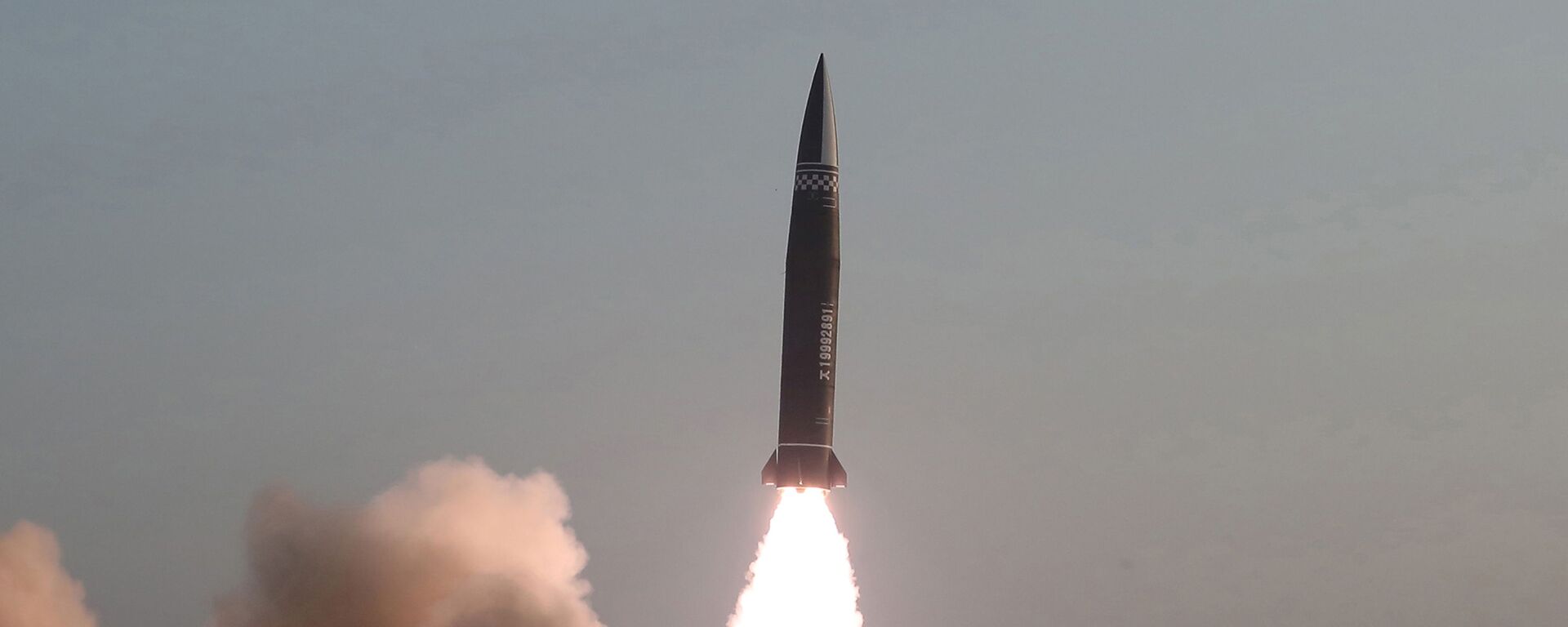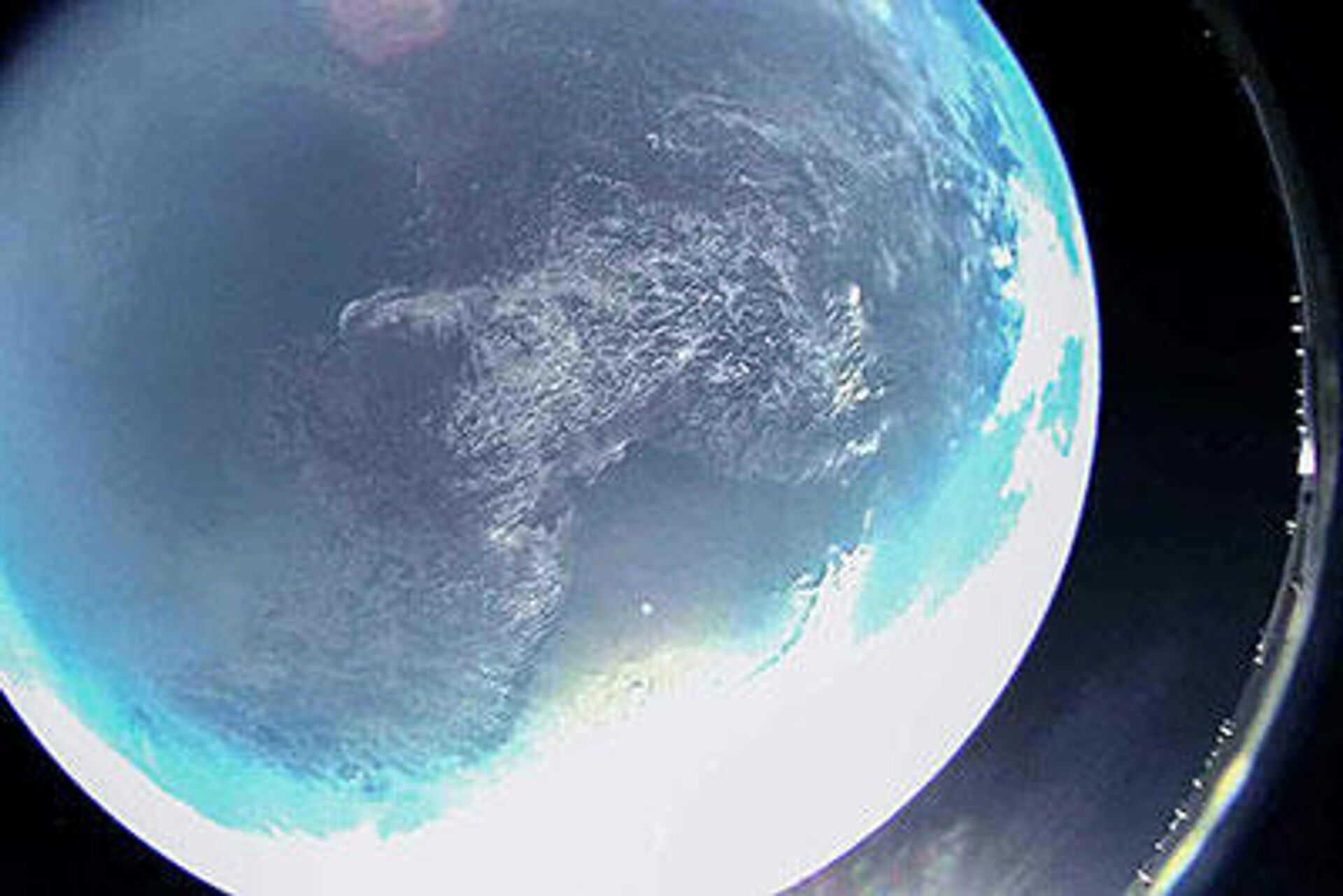https://sputnikglobe.com/20220228/mystery-projectile-launched-by-north-korea-turns-out-to-have-been-test-of-spy-satellite-equipment-1093460786.html
Mystery Projectile Launched by North Korea Turns Out to Have Been Test of Spy Satellite Equipment
Mystery Projectile Launched by North Korea Turns Out to Have Been Test of Spy Satellite Equipment
Sputnik International
Washington condemned what it categorized as a North Korean “ballistic missile launch” Sunday, saying it would consult with its allies and partners, and calling... 28.02.2022, Sputnik International
2022-02-28T19:06+0000
2022-02-28T19:06+0000
2023-09-18T13:34+0000
satellite
north korea
https://cdn1.img.sputnikglobe.com/img/07e6/02/1c/1093460929_0:21:401:246_1920x0_80_0_0_7db97102ed1296d27edcc15e031e146e.jpg
The unidentified projectile launched by North Korea on Sunday toward the Sea of Japan was a test related to the development of spy satellite equipment, the Korean Central News Agency has indicated.“The DPRK National Aerospace Development Administration and the Academy of Defence Science conducted an important test on Sunday under the plan of developing a reconnaissance satellite,” the North Korean state media outlet reported.The agency released two images taken during the test from high above the planet of the Korean peninsula.The rocket reached a maximum altitude of about 620 km, flying 300 km and falling outside Japan’s exclusive economic zone, according to the South Korean military.US Indo-Pacific Command slammed North Korea over the test and promised to consult with regional allies. Japan, France and Britain also condemned the test, with Washington and its allies promising to raise the issue at a Security Council meeting on Monday.Sunday’s launch was the eighth North Korean rocket or missile test of the year. On 30 January, Pyongyang launched a Hwasong-12 intermediate-range ballistic missile modified with a camera in its frontal nose cone.North Korea last successfully deployed a satellite into orbit in 2016. The craft, known as the Kwangmyongsong-4, or KMS-4, was the continuation of a satellite programme being worked on by the country since the 1980s.The Asian nation is one of just a handful small-to-medium-sized powers which have made great strides in creating domestic space and rocketry programmes notwithstanding geographic and resource limitations. In 2020, Iran’s ‘Noor’ military satellite surprised observers after snapping high-resolution images of the US military air base in Qatar, just months after the Pentagon dismissed it as a mere “tumbling webcam in space” that would be “unlikely” to provide Tehran with any usable intelligence.North Korea also has one of the most advanced ballistic missile programmes in the world, including the capability to produce intercontinental ballistic missiles theoretical capable of striking any point in the United States, and hypersonic glide vehicles.
https://sputnikglobe.com/20220227/us-condemns-pyongyangs-latest-missile-launch-us-indo-pacific-command-says-1093411722.html
https://sputnikglobe.com/20220111/north-korea-launched-hypersonic-missile-during-tuesday-launch-attended-by-kim-jong-un-1092188343.html
north korea
Sputnik International
feedback@sputniknews.com
+74956456601
MIA „Rossiya Segodnya“
2022
News
en_EN
Sputnik International
feedback@sputniknews.com
+74956456601
MIA „Rossiya Segodnya“
Sputnik International
feedback@sputniknews.com
+74956456601
MIA „Rossiya Segodnya“
satellite, north korea
Mystery Projectile Launched by North Korea Turns Out to Have Been Test of Spy Satellite Equipment
19:06 GMT 28.02.2022 (Updated: 13:34 GMT 18.09.2023) Washington condemned what it categorized as a North Korean “ballistic missile launch” Sunday, saying it would consult with its allies and partners, and calling on Pyongyang to “refrain from further destabilizing acts.”
The unidentified projectile launched by North Korea on Sunday toward the Sea of Japan was a test related to the development of spy satellite equipment, the Korean Central News Agency has indicated.
“The DPRK National Aerospace Development Administration and the Academy of Defence Science conducted an important test on Sunday under the plan of developing a reconnaissance satellite,” the North Korean state media outlet
reported.
Sunday’s test helped scientists “confirm the characteristics and working accuracy of [a] high definition photographing system, data transmission system and attitude control devices by conducting vertical and oblique photographing of a specific area on Earth with cameras to be loaded on the reconnaissance satellite,” according to the KCNA.
The agency released two images taken during the test from high above the planet of the Korean peninsula.
The rocket reached a maximum altitude of about 620 km, flying 300 km and falling outside Japan’s exclusive economic zone, according to the South Korean military.
US Indo-Pacific Command
slammed North Korea over the test and promised to consult with regional allies. Japan, France and Britain also condemned the test, with Washington and its allies promising to raise the issue at a Security Council meeting on Monday.

27 February 2022, 05:16 GMT
Sunday’s launch was the eighth North Korean rocket or missile test of the year. On 30 January, Pyongyang launched a Hwasong-12 intermediate-range ballistic missile modified with a camera in its frontal nose cone.
North Korea last successfully deployed a satellite into orbit in 2016. The craft, known as the Kwangmyongsong-4, or KMS-4, was the continuation of a satellite programme being worked on by the country since the 1980s.
The Asian nation is one of just a handful small-to-medium-sized powers which have made great strides in creating domestic space and rocketry programmes notwithstanding geographic and resource limitations. In 2020, Iran’s ‘Noor’ military satellite surprised observers after
snapping high-resolution images of the US military air base in Qatar, just months after the Pentagon dismissed it as a mere “tumbling webcam in space” that would be “unlikely” to provide Tehran with any usable intelligence.
North Korea also has one of the most advanced ballistic missile programmes in the world, including the capability to produce intercontinental ballistic missiles theoretical capable of striking any point in the United States, and
hypersonic glide vehicles.

11 January 2022, 21:08 GMT




